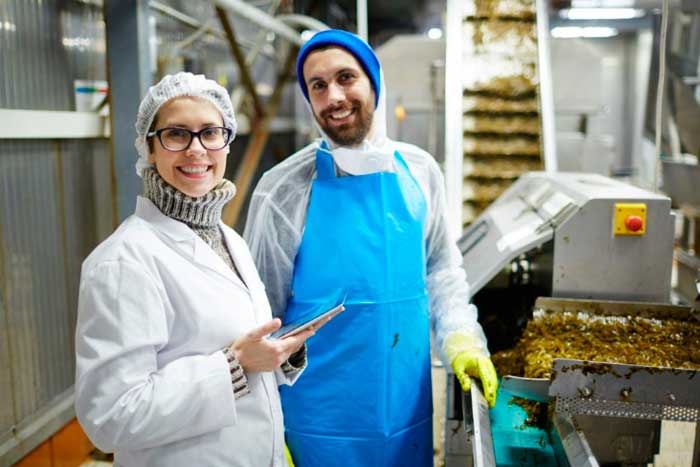Engineering plays a pivotal role in shaping the modern food industry, bridging technical expertise with practical applications in production, safety, and innovation. As food systems grow more complex and technology-driven, engineering principles provide the backbone for solving challenges related to efficiency, sustainability, and compliance. Engineers help optimize production lines, reduce waste, and ensure product safety, all while supporting rapid innovation and evolving consumer demands.

Whether it’s automating a packaging process or integrating energy-saving systems, their contributions are both strategic and hands-on. As Ian Schenkel of Newport Beach knows, this intersection of fields opens up diverse career opportunities for engineers seeking impactful work in a fast-paced, evolving landscape.
The Overlap Between Engineering and the Food Industry
Engineering and the food industry intersect through shared goals: efficiency, precision, and consistent output. Core engineering skills such as systems thinking and structured problem-solving are directly applicable to the challenges of modern food production. These abilities allow professionals to analyze complex processes and identify areas for improvement.
In food manufacturing, engineers often tackle issues like optimizing production flow or automating repetitive tasks. A background in engineering supports the development of scalable systems that reduce delays and increase throughput. A company introducing a new ready-to-eat meal line may rely on engineers to design the layout of the assembly line, ensuring each step is timed and coordinated for minimal waste and downtime. With the added pressures of cost control and sustainability, their role becomes even more critical.
As food businesses grow more reliant on technology, engineers are becoming integral to operations.
Applying Engineering Principles to Food Manufacturing
Food plants today resemble highly technical environments, where precision and control are critical. Engineers bring structured methodologies from fields like mechanical and industrial engineering to ensure equipment runs smoothly while maintaining consistent product quality. Whether it’s designing conveyor systems or fine-tuning thermal processes, their work supports both safety and efficiency. Their adaptability also allows them to troubleshoot in real time during production issues.
In a high-volume bakery, engineers might be tasked with automating dough mixing and proofing stages to meet rising demand without compromising on texture or taste. Through proper calibration and system integration, they help scale production while keeping quality in check.
Engineering knowledge also plays a key role in sustainable food manufacturing. By rethinking packaging lines or reducing energy consumption during refrigeration, engineers contribute to both environmental goals and cost savings.
Boosting Efficiency and Reducing Waste
Efficiency is a constant pursuit in food production, where margins are tight and demand is high. Engineers analyze workflows to uncover bottlenecks and streamline operations. Techniques like Six Sigma and lean manufacturing are often employed to minimize variation and eliminate unnecessary steps that slow down production. These improvements not only cut costs but also enhance overall product consistency and delivery speed.
A dairy processor might find that downtime between pasteurization and bottling is extending delivery times. With engineering input, the process can be restructured to reduce idle equipment and synchronize stages more tightly. These adjustments lead to faster turnaround and better resource utilization. Over time, such refinements can significantly improve customer satisfaction and brand reliability.
Waste reduction goes beyond ingredients—it covers energy, water, and packaging. Engineers often introduce monitoring systems to track usage and identify inefficiencies.
Strengthening Safety and Regulatory Compliance
Engineers are deeply involved in designing systems that uphold food safety and meet stringent regulatory standards. Their role often includes integrating sensors and real-time monitoring tools that track variables like temperature, pressure, and humidity throughout production. These systems help maintain product integrity and prevent contamination at every stage.
When a food company expands into new markets, compliance with international safety standards becomes critical. Engineers assist in aligning production protocols with certifications such as ISO 22000 or GFSI benchmarks. Their ability to translate regulatory requirements into technical solutions ensures the company remains audit-ready and avoids costly recalls. In some cases, they may also guide staff training to ensure proper system use and compliance continuity.
Beyond compliance, engineers often play a proactive role in risk prevention. Through hazard analysis and control point mapping, they help identify potential failure points before problems arise. This kind of foresight builds consumer trust and strengthens long-term brand reputation.
Driving Innovation and Product Development
Engineering is an engine of innovation within the food industry. From concept to commercialization, engineers collaborate with R&D teams to bring new products to life. Whether it’s designing novel equipment for plant-based protein extrusion or scaling up a lab-tested snack formula, their technical input ensures ideas are feasible at an industrial scale.
In seasonal product rollouts, engineers manage pilot runs and adjust machinery settings to match new ingredient properties. Their ability to troubleshoot on the fly helps compress development timelines and get products to market faster. Collaboration with marketing and supply chain teams further supports smooth transitions from development to distribution. This integrated approach helps secure a product’s consistency and market success.
Career Opportunities for Engineers in the Food Sector
Engineers entering the food industry discover a wide range of career paths, from production optimization and supply chain integration to packaging innovation and sustainability consulting. Roles are not limited to factory floors; data analysis, project management, and even product design offer diverse avenues for impact.
A mechanical engineer might oversee the installation of energy-efficient equipment in a beverage plant, while a chemical engineer could work on improving shelf life through modified atmosphere packaging. These positions allow engineers to apply their expertise in dynamic, tangible ways—often with immediate results. The ability to witness the real-world implications of their work adds a layer of fulfillment that’s hard to match in more abstract fields.
